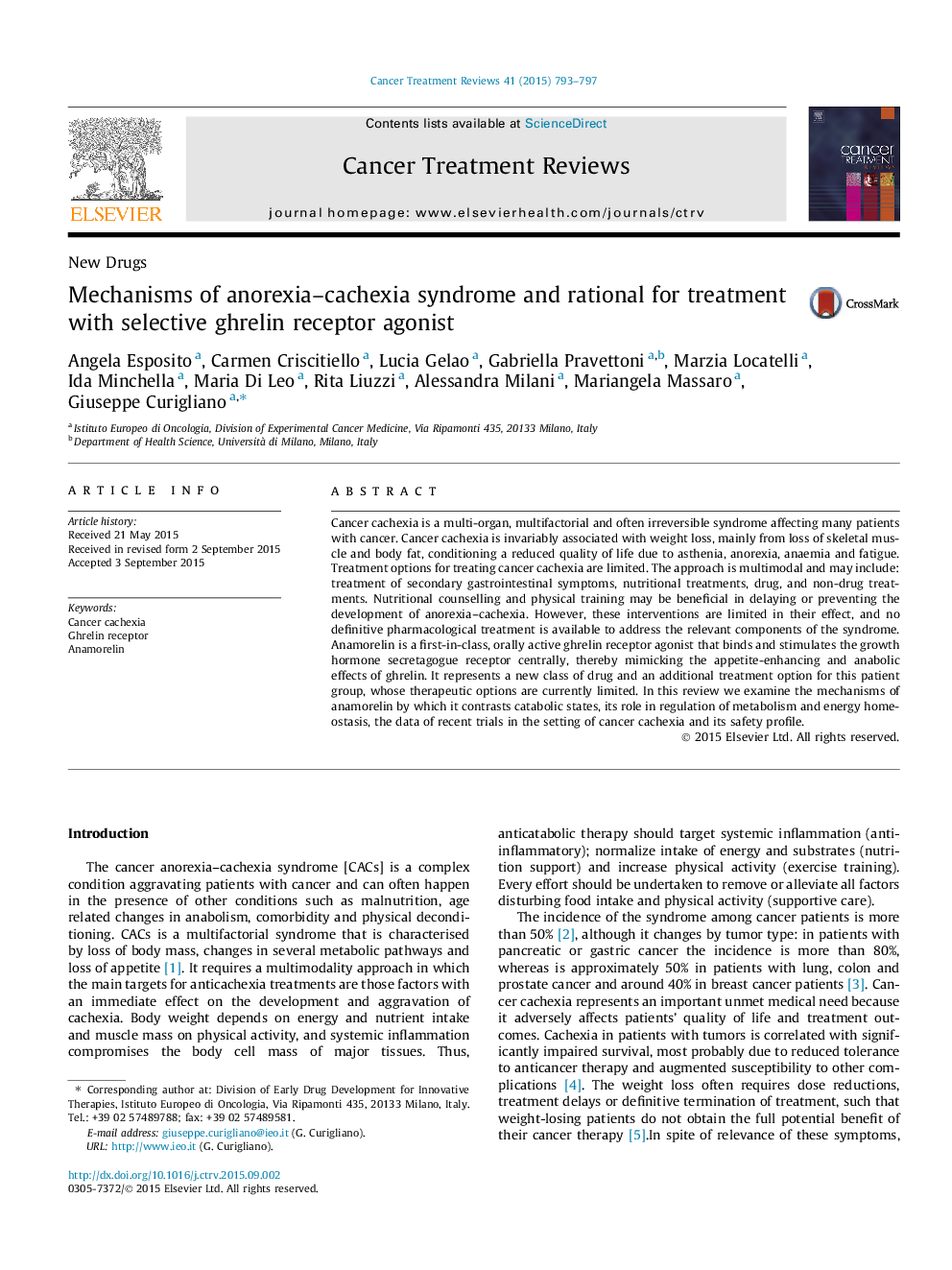| Article ID | Journal | Published Year | Pages | File Type |
|---|---|---|---|---|
| 6190471 | Cancer Treatment Reviews | 2015 | 5 Pages |
â¢Cancer cachexia is a multi-organ, multifactorial and often irreversible syndrome.â¢Treatment options for treating cancer cachexia are limited.â¢Nutritional counselling may be beneficial in delaying cachexia.â¢Anamorelin is a first-in-class, orally active ghrelin receptor agonist.
Cancer cachexia is a multi-organ, multifactorial and often irreversible syndrome affecting many patients with cancer. Cancer cachexia is invariably associated with weight loss, mainly from loss of skeletal muscle and body fat, conditioning a reduced quality of life due to asthenia, anorexia, anaemia and fatigue. Treatment options for treating cancer cachexia are limited. The approach is multimodal and may include: treatment of secondary gastrointestinal symptoms, nutritional treatments, drug, and non-drug treatments. Nutritional counselling and physical training may be beneficial in delaying or preventing the development of anorexia-cachexia. However, these interventions are limited in their effect, and no definitive pharmacological treatment is available to address the relevant components of the syndrome. Anamorelin is a first-in-class, orally active ghrelin receptor agonist that binds and stimulates the growth hormone secretagogue receptor centrally, thereby mimicking the appetite-enhancing and anabolic effects of ghrelin. It represents a new class of drug and an additional treatment option for this patient group, whose therapeutic options are currently limited. In this review we examine the mechanisms of anamorelin by which it contrasts catabolic states, its role in regulation of metabolism and energy homeostasis, the data of recent trials in the setting of cancer cachexia and its safety profile.
